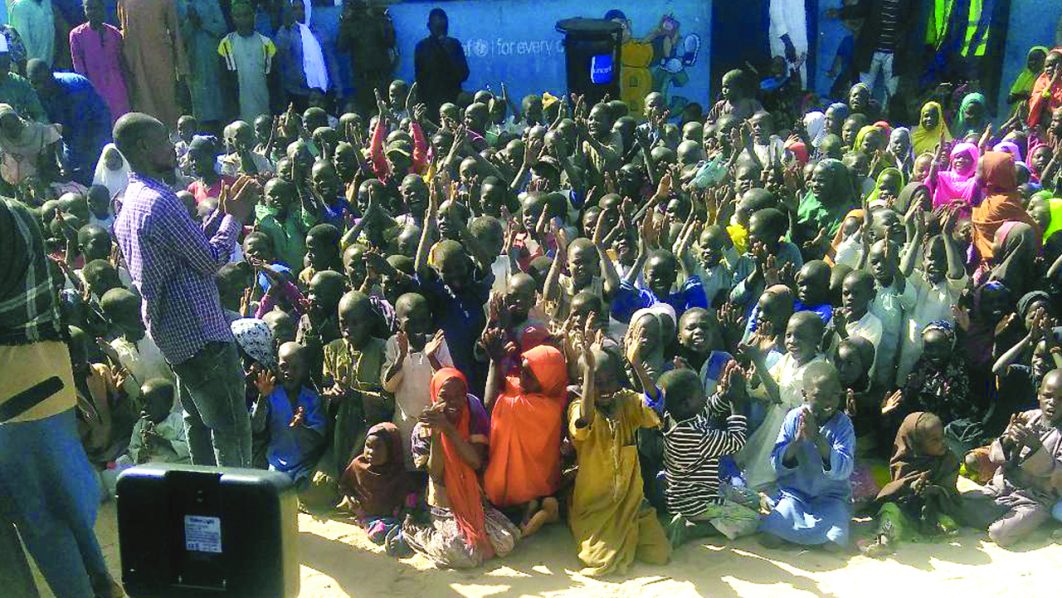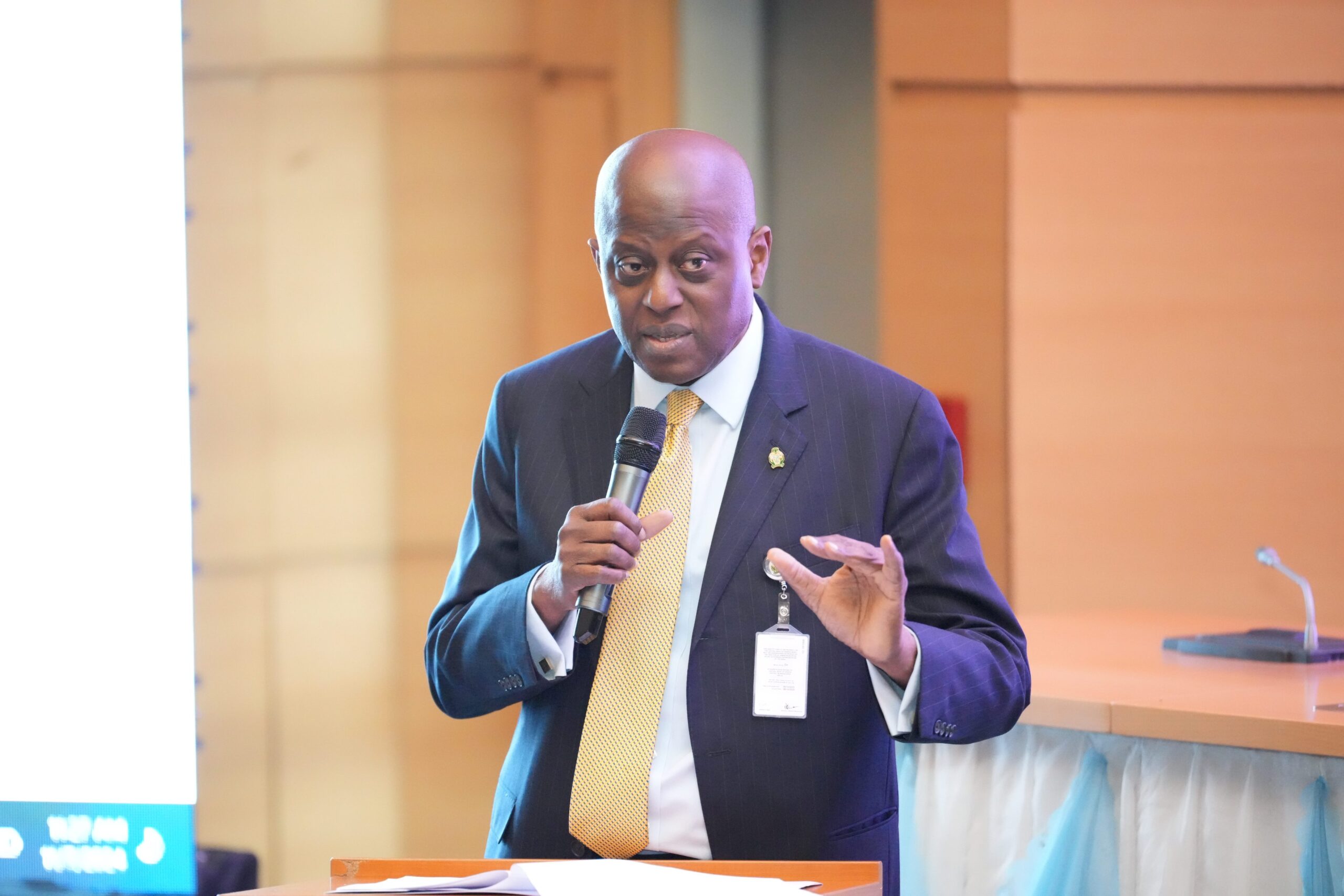How underground economy feeds suspense in troubled region

“Tor, ka gia mana,” (Alright, tell me) I retorted.
Hearing that, he looked furtively around, displaying unmistakable signs that he was not comfortable with the environment. We moved away from the throng and other former fighters joined as we headed farther into the camp.
As we settled at the back of the makeshift shelter, sundry smell of assorted drugs, especially cannabis laced with captain black wafted through the air.
“We are happy to be out of the bush,” he began. “But, these people are cheating us. They do not pay us on time. You know the problem that is happening in this town, it will be up to 15 days before they give us food.
“It will be 40 days before they give us salary, and the salary is just N10, 000 that they give us. The women, it is N5,000 that they give them. Even persons with 10, seven or five children, it is only four bags that they will give us for one month.
“We will use our money to buy firewood and fish. We are suffering and our people inside tell us that Government brings plenty money, but the people sharing it will not give us. We are worried that what the government is releasing does not get to us.”
The recent visit by journalists to rehabilitation camps in Maiduguri, Borno State, opened a window to the state of things about the 13-year long battle against Boko Haram insurgency. While the camp at Giwa Barracks houses captured insurgents, the one at Maimalari holds more than 14,000 repented fighters, their wives and children.
At the Maimalari camp, The Guardian interacted with some of the former fighters, who complained of sharp practices by officials tending to them. But while the Boko Haram turncoats reeled out their complaints, this reporter’s journalistic instinct prompted a question as to how they lived their lives in the bush, particularly how they sourced their telephone lines.
Although the former fighters refused to disclose their names to avoid being targeted and locked up, they revealed that the SIM registration exercise did not prevent fighters from getting phone lines.
The former fighters disclosed that pre-registered SIMs from Enugu and Abia states get to them in bush through Cameroun, as well as essential items, particularly, petroleum products.
However, despite the complaints of the former fighters, Alhaji Naheem Ibrahim, who said he had been with the sect right from the days of Mohammed Yusuf, disclosed that ever since he left the Sambisa Forest, he has continued to preach to other young men in the bush to come out.
“We send video and pictures from the camp to those still in the bush to come out. They express willingness to come and join us here, but they are afraid of being found out,” he stated.
Also, a former Boko Haram Commander, Mallam Adamu, who showed scars from wounds sustained in the battle, said he hearkened to Governor Zulum’s sincere appeal to surrender.
He stressed that his surrender compelled many fighters to follow suit, noting that “here in the camp, we are well catered for, the government is doing a lot for surrendered fighters. Our women and children are also well looked after, and medical personnel are here to treat those that fall sick.”
From the accounts of the former fighters, it is obvious that the Boko Haram enabled underground economy has become part of the insurgency and continues to blossom with various patrons.
The activities of humanitarian organisations, abuses inclusive, also contribute to the panoramas of insurgency in Nigeria’s Northeast.
Amid those adventitious outgrowths of tests, it is becoming evident that the Nigeria military high command has demonstrated enormous fighting power in its resolve to crush the more than one decade-long insurgency in Northeastern part of the country.
With a mixture of kinetic and non-kinetic approaches to the war, as well as, injection of modern fighting equipment, it is not surprising that the enemy’s camp continues to witness massive desertion and surrender of its fighting men.
Recently, in an interaction with select journalists in Maiduguri, the Theatre Commander, Operation Hadin Kai, Major General Christopher J. Musa, disclosed that 82, 000 former Boko Haram fighters are being held in the three camps in Maiduguri.
He explained that the former fighters hearkened to the appeal by Borno State governor, Prof. Babagana Zulum and the sustained fire power of the Nigeria military to repent of insurgency, stressing also that accounts of favourable treatment by the security agencies from surrendered terrorists contributed to the surge of surrendering fighters.
Plethora of challenges
However, despite that success story, a plethora of challenges still dog the nation’s security forces at the theatre of operation. Some of these challenges range from preemptive attacks by Boko Haram commanders on fighters willing to surrender, activities of conflict entrepreneurs and funding capacity to take care of swelling numbers of captured and surrendered fighters.
According to the military, by far what could be described as the greatest challenge to the restoration of normalcy and bringing to closure the human misery in Northeast is the influence of some international Non-Governmental Organisations (INGOs), humanitarian bodies and international media.
Records have shown that when international media run into dry news moments, they turn to the Boko Haram insurgency to put Nigeria on the spotlight.
According to the Theatre Commander, reports with skewed editorial slant, especially those that paint the picture of either perceived human rights or massive casualty of troops are some of the ways international press tend to demoralise the troops.
That could explain why the Defence Headquarters decided to come hard on an international media outlet, Reuters, when it flew the kite that infanticide is being encouraged by the Nigeria military.
The notable international news agency had disclosed that it was working on a story line, which bordered on the 13-year war against Islamist insurgents in Nigeria Northeast. But it happened that the suggested copy, which purported to focus on supposed military-run programme of forced abortions on women and girls captured and impregnated by Islamist militants, was part of the international conspiracy against Nigeria, the army alleges.
Reuters had indicated its desire for accurate and balanced reports on a second topic they were working on regarding a supposed killing of children by the military as part of its counterinsurgency operations.
However, the Nigeria military maintained that there was no remotest possibility of such outlandish suggestion at any point during the 13-year-long fight against insurgency.
In a statement by the Director Defence Information (DDI), Major General Jimmy Akpor, the military said that the “Reuters alleged that, since 2013, Nigeria’s military had run a secret, systematic and illegal abortion programme in the country’s Northeast, terminating at least 12,000 pregnancies among women and girls.
“That, many children were shot, poisoned, suffocated or run down by vehicles in army-led actions. Furthermore, the report alleged that soldiers selected babies and toddlers for killing after rescuing them and their mothers from Islamist militants, amongst other weighty concocted allegations.”
Reuters, according the Director of Defence Information, had alleged that the motive for supposedly carrying out the abortions was in the notion that the children of Islamist militants, because of the blood in their veins, could one day follow in their father’s footsteps and take up arm against the Nigerian government and society.
Describing the series of salacious stories from international news media outlets, especially Reuters, as emanating from a mentality of ‘media bullying’, the DDI stated: “Wickedness really runs in the veins of some people and it surely runs deep in the veins of the Reuters team that concocted such evil for interrogation.
“The fictitious series of stories actually constitute a body of insults on the Nigerian people and culture for, no people or culture in Nigeria practices such evil as cooked up by the Reuters team. Irrespective of the security challenges we face as a nation, Nigerian people and culture still cherish life.
“Hence, Nigerian military personnel have been raised, bred and further trained to protect lives, even at their own risk especially, when it concerns the lives of children, women and the elderly. This much is reflected in Standing Operating Procedures (SOPs), Concepts of Operations, Rules of Engagements (ROEs) and other documents that guide military operations.”
He noted that the Reuters team “must have been schooled in, and have now become proponents of scorched-earth and inhuman policies employed by colonialists during the colonial era and during the battles for independence in Indo-China, Malaysia, Algeria and other places.”
Processing captured insurgents
While the upsurge in the number of repented insurgents continues, the Nigeria Army explained that basic screening and profiling remain a primary step to accommodating the turncoats in the camps.
For that purpose, a Joint Investigation Centre (JIC) was put in place at the Giwa Barracks of the Nigeria Army. Built as a centralised detention facility located in Giwa Barracks Maiduguri, Major General A. S. Adekeye, told journalists that the JIC was established for temporary holding, screening and further investigation of suspected Boko Haram, ISWAP (Islamic State of West African Province) terrorists arrested in counter terrorism and counter insurgency operation in the Northeast of Nigeria.
He explained that the JIC is also “multi-agency centre comprising personnel from the Nigerian Army, Defence Intelligence Agency (DIA) and the Nigerian Police Force. Others include, Department of State Service (DSS), Nigeria Security and Civil Defence Corp (NSCDC), Nigerian Correctional Services (NCoS) and the Nigerian Immigration Service (NIS).
“The centre shoulders the burden of administering suspects arrested by frontline units, not surrendered. It was conceived out of the idea of having holistic and unified multi-agency approach in investigation of terrorism and other related crimes,” he declared.
Adekeye explained that once a case is conclusively investigated, a file is opened, which is ultimately passed over to the Attorney General of the Federation (AGF) for review.
He remarked that the team of investigators is complemented with language assistants drawn from the various security agencies, who conduct the investigation.
“The investigations are conducted within the legal framework of Terrorism Prevention Act of 2013 (as amended) and the recent Terrorism Provision and Prevention Act of 2022.
“Investigations are carried out conducting a human right based approach and with the aid of Special Investigation Techniques (SIT) and equipment.
“The centre usually obtains a remand order from the federal high court to keep the suspect under custody pending the compilation or completion of the investigation,” he stated, pointing out that suspects are categorised in such a way that after the investigation, the complex case group carries out the review of the investigation report and offer the necessary legal advice.
The three main categories, he explained, based on the result of the investigation and the legal reviews are, prosecution, rehabilitation and reintegration. While those recommended for prosecution are taken to Giwa project, the Centre Commander disclosed that those for rehabilitation and reintegration are moved to Operation Safe Corridor and to Borno State government, respectively.
Adekeye itemised the major challenges confronting the JIC to include unavailability of battlefield-based evidence, difficulty in accessing witnesses and delay in prosecution of suspects.
He noted that delay in prosecuting most of the suspects whose investigation had been completed poses a great challenge to the centre, because most of the suspects in detention are awaiting prosecution.
“The absence of ongoing prosecution at Giwa Project is responsible for the continued delay of the suspects in detention longer than necessary. We normally conduct this prosecution in our Giwa Project, in Kanji.
“The activities of COVID-19 stalled most of them that were supposed to be prosecuted, but now the office of the Attorney General has assured us that come January, they are going to start. We have more than 900 of them whose files are ready to be transported to Kanji for prosecution.
“We are even looking at whether they can make use of this place for the court, but lawyers are afraid of coming to Maiduguri, because of safety,” he narrated, adding that before their movement from the centre to these places, the centre captures the biometrics of every suspect to maintain a database of all persons and suspect that passed through the centre.
Looking ahead
Despite these challenges, the Theatre Commander, Operation Hadin Kai, Major General Christopher Musa, said the command is happy with the massive surrender of the fighters, saying that their capitulation is a continuous thing.
“And, for us, I think the surrendering has also assisted in bringing peace to the Northeast greatly. For the camps, you can imagine, with 82,000 inmates, I don’t know how many villages that you have that mass of persons. It is not a small number.
“Naturally, the three camps have been overfilled definitely, but the state government is trying because they have to feed them, they have to provide amenities, medical and all those things. It is not easy. The state governor, frankly speaking, has been very lucky, because he has been determined even before they started surrendering. It was just an added responsibility to him.
“We have requested the Federal Government to also step in, because we need a DDR (Disarmament, Demobilisation and Reintegration) programme, since from the profiling, not everyone of them is a terrorist. Some were conscripted, because if they capture a village, they turn every male there to be a fighter and then the women for logistics. That is how they were operating.
“And then some of them were born there, they didn’t know, so when they come, we try to isolate them and the state government does some level of de-radicalisation. Then with the community, because we told them that it is important for us to have a closure.
“The communities must be part of it, because whatever it is we are doing, if the communities don’t take them back, we are not succeeding. So, the communities have agreed that these fighters should be kept separately, but those ones that they can use as farmers, who were forced into it, they need them.
“And, the good thing about this area is that all of them know themselves, that is why the civilian JTF can easily sit down in the vehicle, point out Boko Haram member for you. They grew up together and are almost from the same tribe, the same religion. So, they know themselves very well, as such it is easier for us to identify who is who,” the Theatre Commander surmised.
However, while the military anticipates a closure, the beneficiaries of the insurgency, including operators of the underground economy, conflict entrepreneurs and some International Non-Governmental Organisations (INGOs), devise subtle schemes to prolong the unease in Northeast.
It was gathered that some of the INGOs paid up for as much as 10 years’ rent in advance for hotel accommodation in the troubled area, a potent signal that they anticipate prolonged hostilities.
Some others, instead of addressing immediate humanitarian challenges that prompted their accreditation, insist on peace advocacy verging on social issues that are far removed from Conflict-Related Sexual Violence (CRSV) like sexual slavery, forced marriage and forced pregnancy.
For instance, while journalists wanted to get its projection for an endgame, the
Deputy Head of Office, United Nations, Office for the Coordination of Humanitarian Affairs (OCHA), Esty Sutyoko, preferred a conversation that centred on OCHA’s global campaign, which began on November 25.
She said the 16 days of activism, which was tailored to end on December 10 to mark the Human Rights day, “is a global campaign to eliminate violence against women and children.”
Sutyoko, who did not hide her aversion to entertaining questions from Nigerian journalists, stated: “We, as a community, are working with grassroots communities, civil society organisations, community leaders, we promote the welfare of women and children.
“We empower women and children, their participation in decision making, their participation in education, their ability to understand their rights and their ability to say no, when they see that their rights are being violated.”
The unwieldy number of INGOs and NGOs ranging up to 242 and counting, makes it impossible to track their fidelity to their declared mandate. All these make the task of winning the peace in the Northeast very challenging.[






